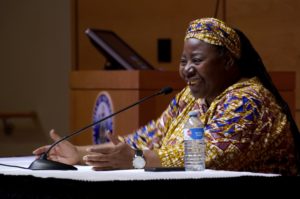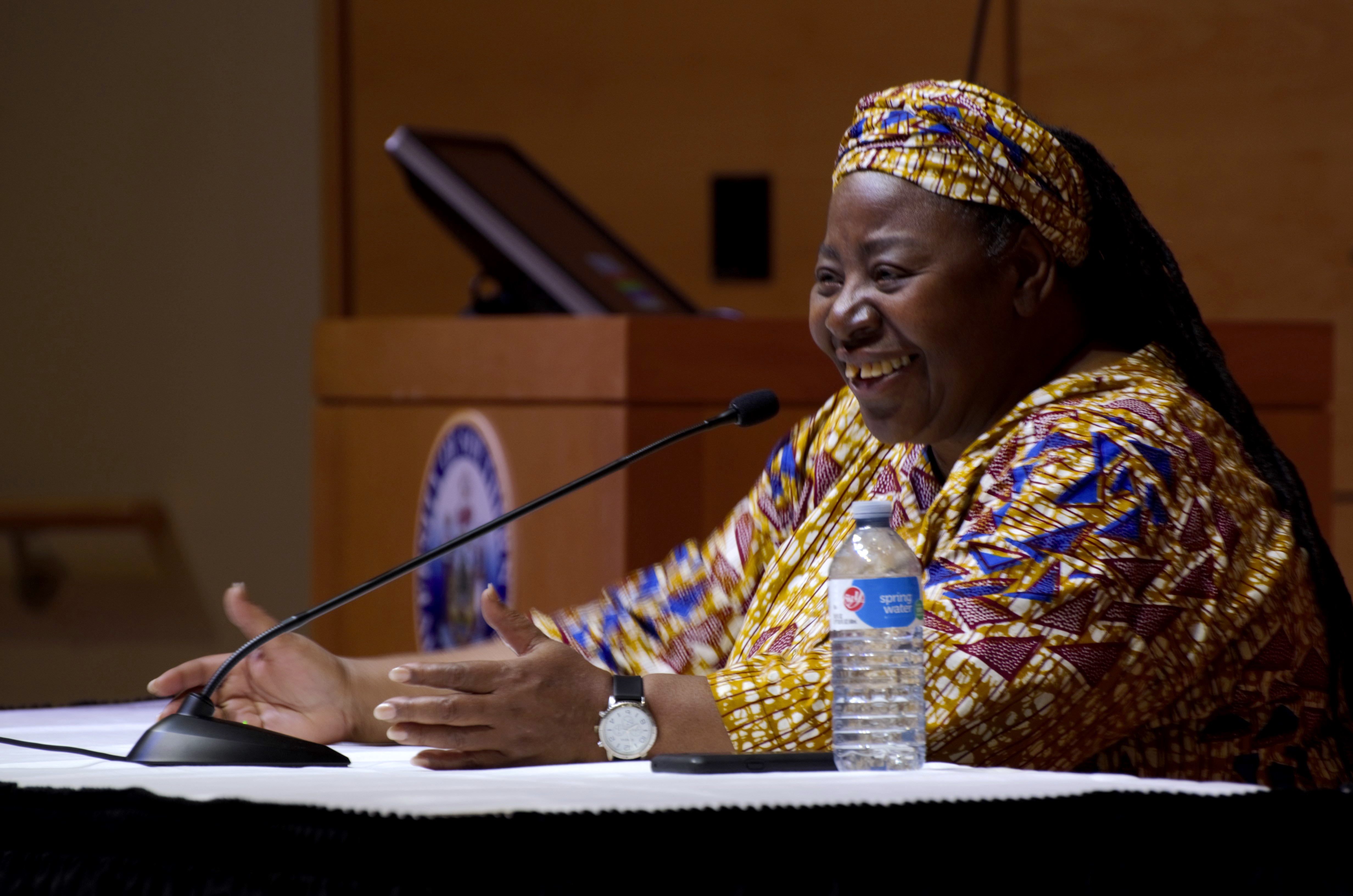By Jamela Lewis, Staff Writer
Human rights activist and self-described Texas Southerner Loretta J. Ross, received two standing ovations from a diverse audience representing the Portland and USM communities. Ross took to the podium approximately 7 p.m. on the night of Friday the 13 in Hannaford Hall following the Women & Gender Studies (WGS) awards ceremony. Ross presented a provocative, yet well-received keynote address titled “Reproductive Justice in the Age of Trump.” Adult themes containing a hint of feminist economics, political science, wicked sense of humor, self-reflection and Ross’ rules of de-stigmatization kept the crowd on the edge of their seats.

Ross was invited to USM after Lisa Walker, Director of WGS, mentioned to her colleagues with sheer enthusiasm that she had heard “This amazing powerful speaker that we need to bring to our campus.” Upon discovering it was Ross that Walker spoke of in such high regard Nancy Griffin, VP of Student Affairs, stepped into action. Ross’ speaking engagement was co-sponsored by Griffin, the Convocation Committee, the Inter-Cultural and Diversity Advisory Council and the Provost Office.
Ross spoke candidly about the difficult subjects of reproductive justice and white supremacy. She opened with a statistic that connected the rise in teen pregnancies amongst white teenagers with the regrouping of white supremist. She believes this adverse trend resulted from the right-wing politics’ involvement in hacking reproductive policies which is the initial covert formulation of enlarging the white population.
Ross defines white supremacy as “a body of toxic noxious set of ideas about power and domination, which includes racism, misogyny, Christian nationalism, and transphobia and homophobia. It’s not a race of people.” Furthermore, she stated, “Obviously everyone whose white is not a white supremacist and all white supremacists are not white.”
Despite the current riptide of reproductive injustices and growing waves of fascist movements in America, Ross reminded her audience that a result of “bad parenting has kept young people racially and sexually immature.” Too many college youths are taught to be averse to open conversations about racism.” Reproductive justice “is built on the foundation of human rights but the framework requires that the most vulnerable populations be kept in the center of our lens, not at the margins,” Ross said.
“You can bring your imperfect self to the movement, because the cause is perfect” is quoted by Ross on the flyers posted on campus. When asked who is being addressed in that statement, “It is first directed at me. When my activism was born I had this idea that I had to be the perfect activist. As I matured in my activism I learned to practice forgiveness of myself, so I could learn how to forgive others,” Ross responded.
Ross said that she became an activist because she was “pissed off” with the injustices that drove her to her ‘rock bottom,’ a common metaphor used by addiction and recovery cohorts to describe the point in one’s life where you have dragged yourself down to the deepest darkest depths with nowhere to go but upward and onward. She exemplifies a new inclusive movement with the hopes of continuous collective change for the betterment of humanity.
As the lecture came to a close, Ross left the audience with a positive statement that invoked loud cheers. “Since there is nothing natural or inevitable about plundering other people’s stuff, I’m an activist because I believe that humanity is capable of making the right decisions.”

